|
Every farm is run a bit differently, with different priorities in mind, different motivations and different goals. It is difficult to express in words what we do with our farm. The ideal scenario to communicate this with you, is for you to come down to the farm for a visit, spend some time in the fields and see the forest surrounding the fields. We do have an open invitation once a week during the warmer months, check out our page “A Place of Fruition” for more info. In lieu of that, I will try to put it into words here as best I can. Our farm is run with the natural world as our highest priority, what does this mean? This means every action we do on the farm is done with how it might impact the natural world in mind. This means we use no pesticides of any kind on our vegetables. It means we don’t use any chemical fertilizers. It means we try to eliminate food waste any way we can. There’s an important thing to talk about - food waste. What does that mean? It means something that was grown or raised up until the point that it is edible and ready to be used by humans… but then isn’t, for whatever reason. One huge contributor to this is the non-use of a vegetable with “blemishes”. The modern conventional model for vegetables has the absolute perfect looking vegetables for sale to the buyer: no bruises, no insect bites, nothing mis-shapen. Anything that does not meet these unnaturally high standards is considered a “2nd” if it does end up available to a buyer, however they are just as often simply left in the field - wasted. Many people have been trained by this system to only buy produce that looks perfect. If you’ve ever grown your own food, you know that a perfectly straight carrot takes the same amount of time, energy and nutrients to grow as a crooked one. And there is no difference in taste or nutrition. On our farm, we give you veggies with blemishes because they are still high-quality and it is a waste to simply throw them away. When you see that apple looking perfect in the grocery store, what you don’t see is all the pesticides on it, or the layer of wax on the outside of it, or the thousands of miles it travelled to get there, or all the fuel it took to get it here, or the living conditions of the people who harvested it, or the history of the land it was grown on - what nature, people or animals it displaced, you don’t see how cheaply it was sold to the all the middlemen between the farm and the store, how the store makes more on it than the farmer - and you don’t see all the apples at didn’t reach these high aesthetic standards to be on the shelf beside it. When you buy an apple from us, it is just an apple, no pesticides, no wax, no people being taken advantage of, and it was grown close to you. It may have a worm hole, a scratch or a bruise, but 99% of the apple is still great to eat, and I promise you it will taste better because it’s fresher. You may ask - how can we as small farmers compete with large grocery store chains that sell perfect looking produce? The first part of the answer is education, what you are reading right now! When we talk about the reality of the food system we’re living in then we get other people thinking about it, the more people are thinking about it the more they in turn talk about it, and the more people use this information to make informed decisions. Just like all the commercials and ads you see on a daily basis, we are spreading ideas, but these ideas are rooted in the truth of the situation and not just “buy our products”. What has helped our farm survive as long as it has is by communicating why we’re farming the way we are, spreading the idea and realization that it can be done this way, and other people like you talking about and spreading it by word-of-mouth. With all the millions big companies spend on advertising, you’d think they’d have realized by now that by creating an honest and good product, people will talk about it and awareness of it will increase even better with word-of-mouth. Another way way we can compete is by flavour - our veggies taste better than grocery store veggies and I can say that with no ego, it is simply a fact. People often say that tomatoes from the grocery store taste like cardboard. If you try one of our tomatoes it is a world apart from that. Our tomatoes are grown in the fields, fertilized naturally, ripened on the plant, harvested when ripe and brought to you within a day. It is not hard to compete on flavour with produce from the grocery store, however you as the buyer must taste it in order to know the difference. Yes, our large heirloom tomatoes often are uniquely shaped or have scabs on them, but they taste amazing! You, the person buying our veggies, in the end determines if our approach works. We could grow all the things we want, however if no one bought them then our farm would not have survived very long. We owe our longevity completely to the people that support us, and without that support our farm would not exist as it does today. We hold this truth close in whatever we do, and this gratitude informs us in many ways in our business decisions. An example, a few years ago people started asking for plastic-free shares in our Community Shared Agriculture (CSA) program. Reducing plastic use is of course something that is very important to us as we do it as much as we can in growing our veggies, however we were worried that delivering veggies completely in paper bags would leave customers with wilted or less fresh food. As we started putting the requested customers' veggies in paper, we realized that they had no complaints at all, so then we switched to mainly using paper bags for delivered veggies. Another example is that people have asked for more choice in their veggies for the CSA, and while we knew we couldn’t give them free choice for everything (the logistics were just too much), we figured out that offering choices here and there, as well as having an “opt out” option for specific veggies they didn’t like, that it worked out well as a balanced approach. In giving up a little control here, we gained the valuable information of seeing what people like and don’t like, and also seeing that it’s not all the same between people. Not everyone likes sweet potatoes and not everyone dislikes sunchokes! There is a mutual benefit - which we like to see happen in all our relationships, no matter if it’s with people or nature! We always pick our veggies fresh and get it to you fresh, this is just part of our values. Veggies taste better when they’re fresh, they last longer, they’re more nutritious, they look better and more vibrant. We get to taste string beans right off the plant and we want you to get as close to that experience as is possible! Harvesting a large quantity of veggies at a time and then storing them refrigerated for a long time just doesn’t work for us, we are a small operation and so harvesting more than 20lb of something at a time just doesn’t happen very often. We often pick in the mornings so if you need something a certain day you’d have to order it the day before. The reason for this is many veggies wilt in the heat of the sun, so having them inside to wash before then is much better for the quality of the veggie. This doesn’t apply to winter storage of veggies however, and that is simply the reality of farming in the winter season in Nova Scotia.
Our vegetable farm started from a small personal garden in 2011 and expanded to what it is today. Many farmers start with industrial farming then switch to organic or spray-free, but we had a different progression. We’ve never used pesticides or chemical fertilizer or a mainly mechanized production. What this means is - we grow veggies very much like you might in your own backyard garden. We do most activities by hand: planting, fertilizing, weeding, harvesting, washing, and packing, and it has been mainly our own hands since we have only have had a handful of employees over the years. We see with our own eyes what is going on in the fields and the environment, we notice what the plants might need or not need and in this close observation we are able to grow without a lot of the things that modern industrial farmers use. Even though this means we produce less quantity than a farm with many hectares and lots of machinery, the advantage it gives us is quicker and greater adaptability in the face of issues that may arise from pests or climate change, drought or extreme temperature fluctuations. It allows us to grow better quality vegetables - not in looks, but in everything else that goes into it- nutrition, sustainability, and fairness. We are better able to connect with the people eating our vegetables, hear what you need and value, and let you in on the details of what we do. Growing like this gives us more agency, we do not have to meet unreal aesthetic standards and instead go after the quality we see as more important - the health and wellbeing of the natural world, including people. We are “anti-system” on our farm. Why we are antisystem is because once something is standardized it gives people a tendency to go into autopilot where they stop consciously and critically thinking. We don’t want to end up doing that on our farm, we want to be adaptable and able to face any issue in the way it needs to be faced, not how we want to face it. For this reason we use mother nature as our guide, she has been doing all of this way, way longer than anyone we know so we think she knows best. It’s worked so far!
0 Comments
|
AuthorOlde Furrow Farmers!! Archives
March 2024
Categories |
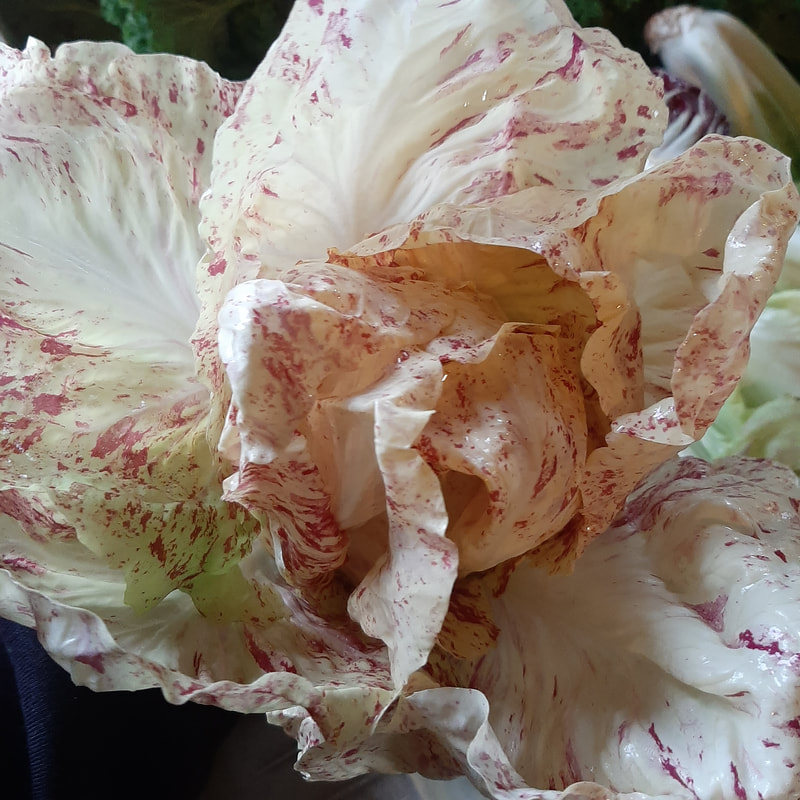
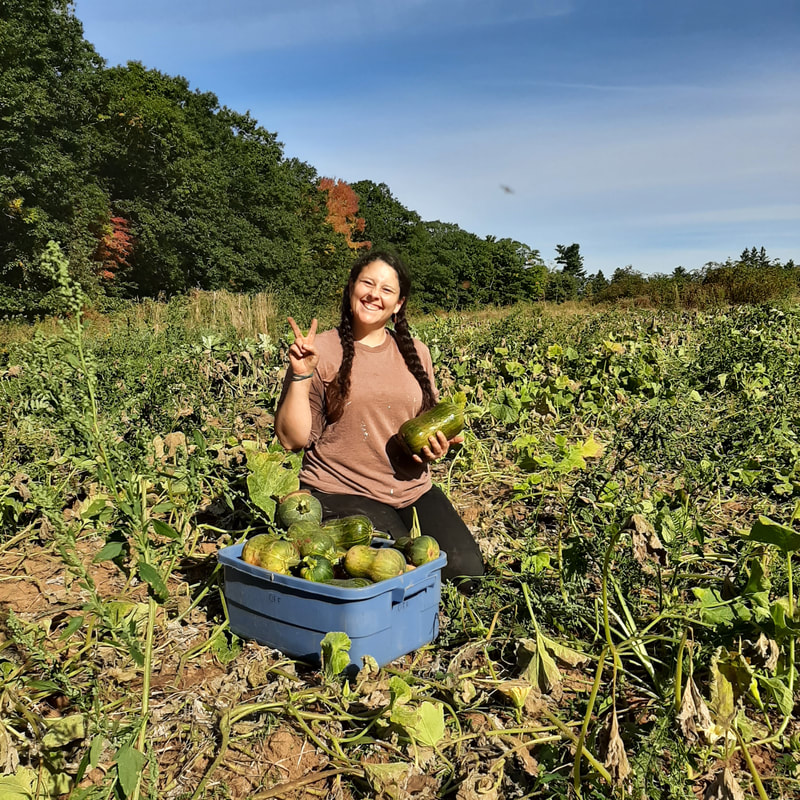
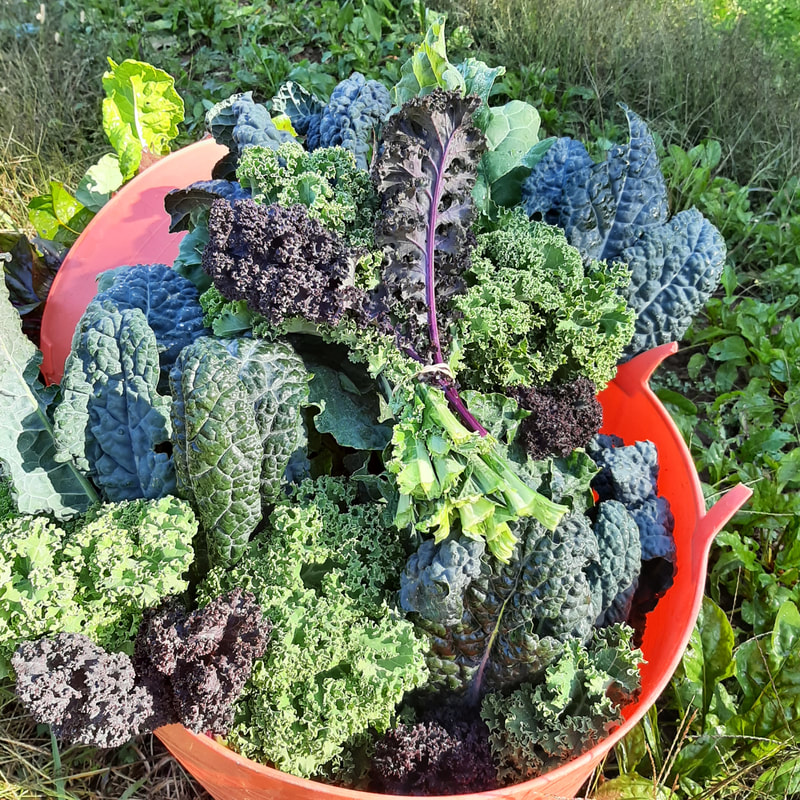
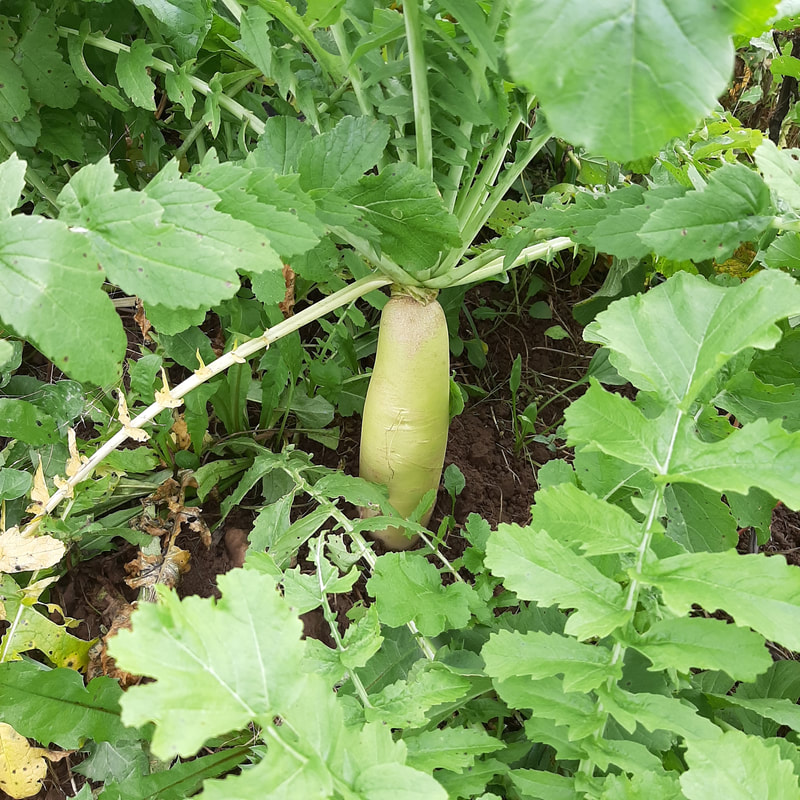
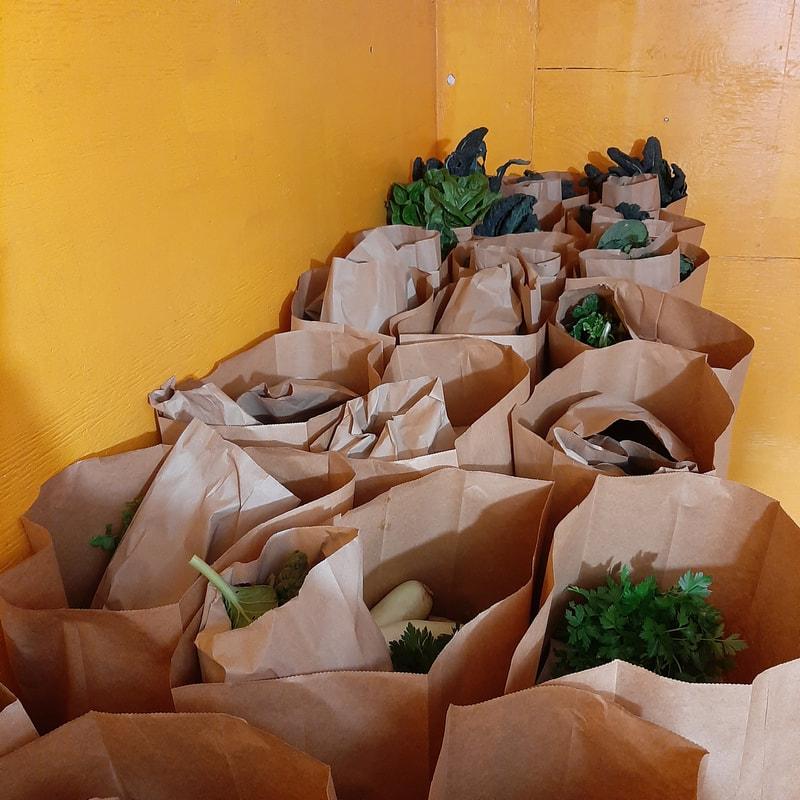
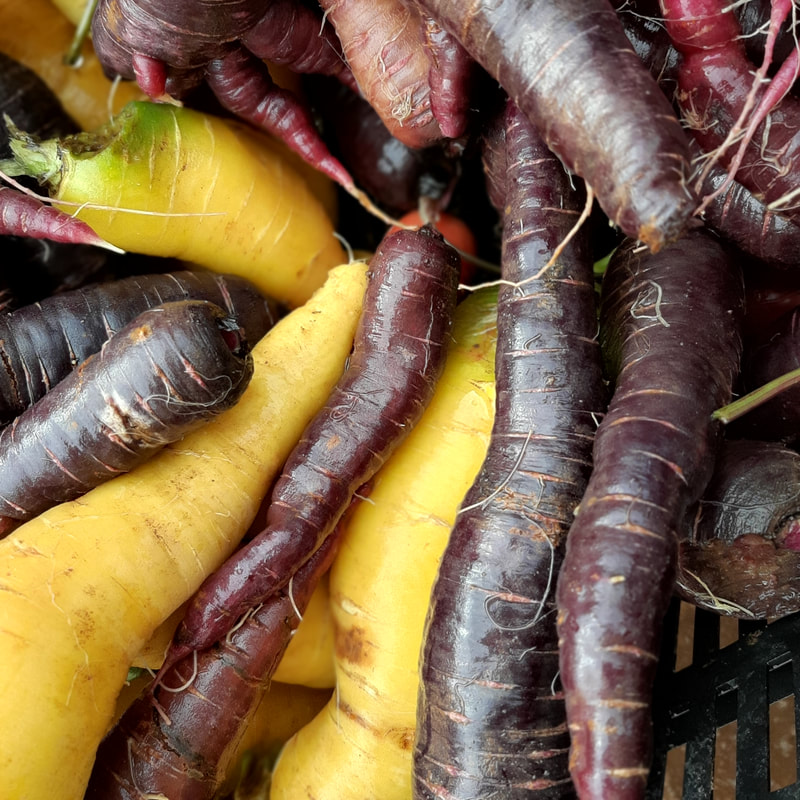
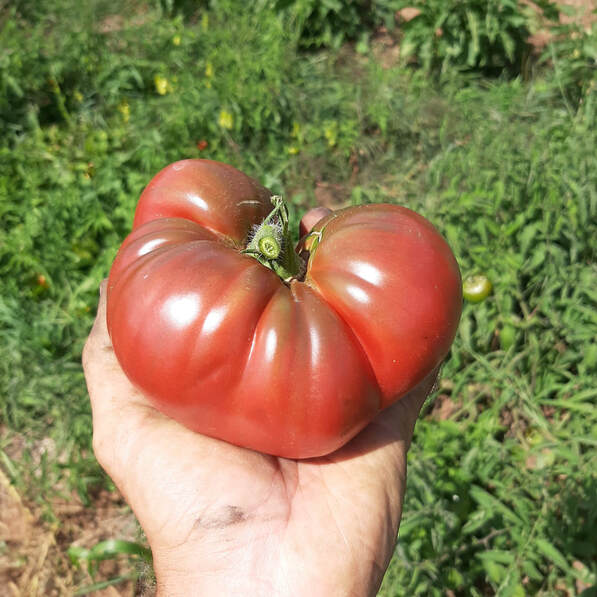
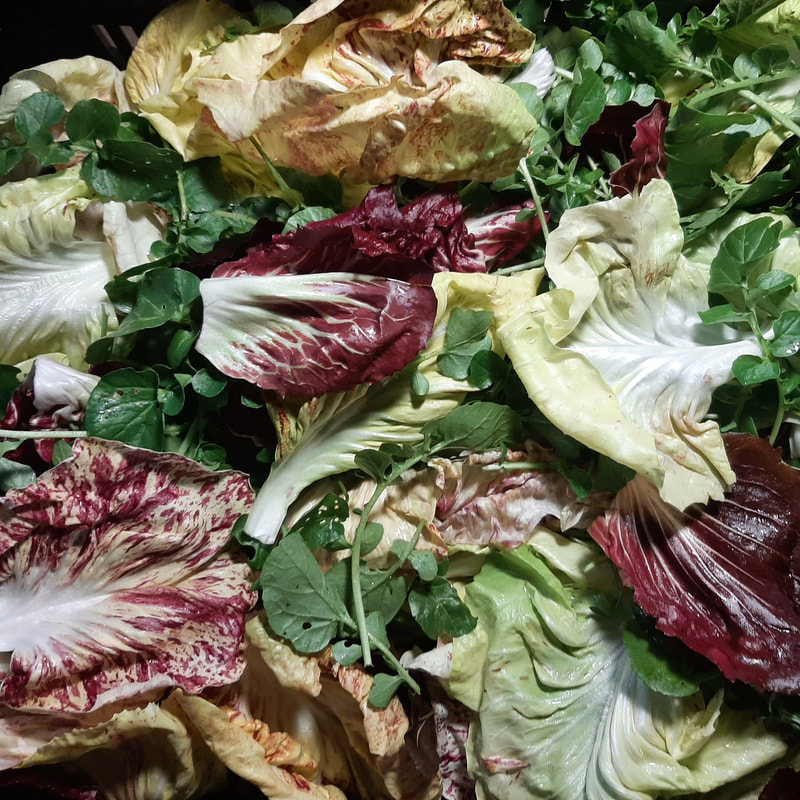
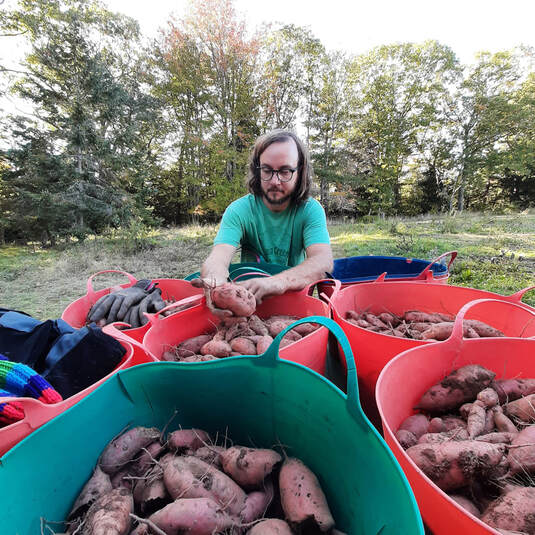
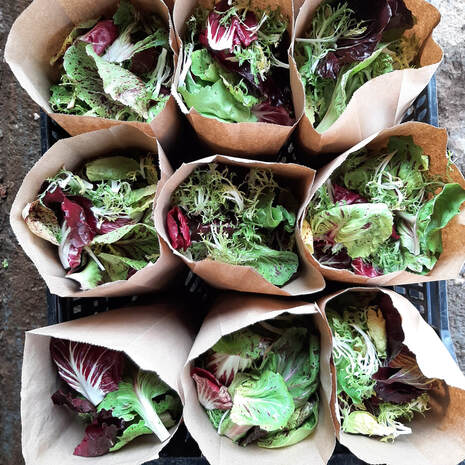
 RSS Feed
RSS Feed